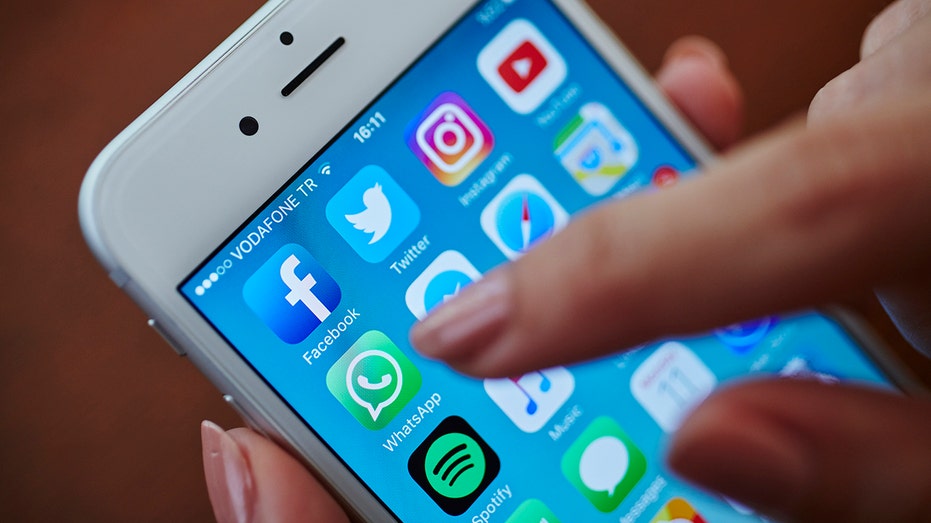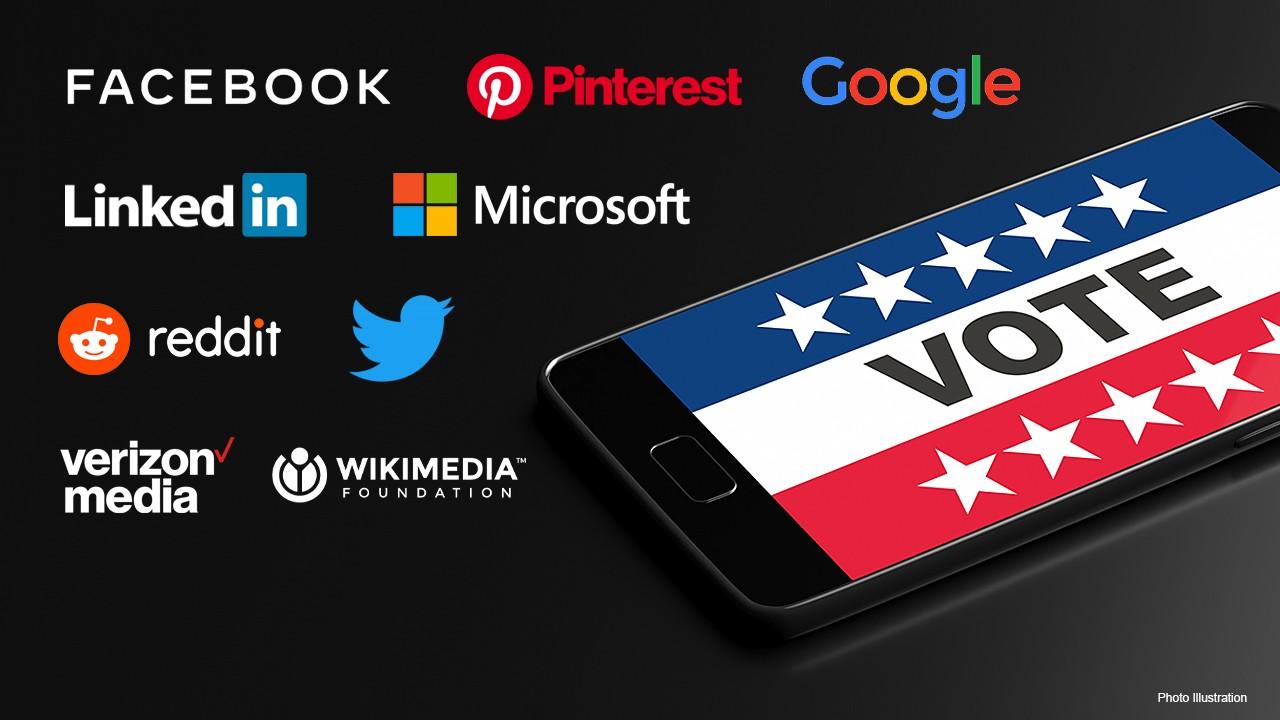Biden could alter Big Tech's Section 230 protections, reinstate 'net neutrality'
Twitter has labeled or removed nearly 50 of President Trump's tweets since Election Day
The list of challenges facing President-elect Joe Biden on Day One includes addressing concerns about Big Tech that have seen a crescendo, as massive firms that profit from user data wield increasing power over how Americans communicate with each other.
While President Trump and Republican lawmakers have criticized tech and social platforms for what they consider censorship of conservative views, Democrats argue that the platforms are failing to adequately police hate speech and violent content.
They agree, however, on one method of resolving those issues. Both Republicans and Democrats -- including Biden -- have called for revoking Section 230 of the 1996 Communications Decency Act, which offers liability protections to Internet platforms that allow third-party users to post content on their websites.
Republicans also argue that users should have the power to contest account suspensions and removals of posts, and that platforms should be held liable in cases when censorship is not justifiable or in “good faith,” as the law states.
The president-elect believes Internet platforms should be held liable when users post false or hateful information that could lead to harm. A Thursday report in The New York Times emphasized Biden's position on revoking 230.

President-elect Joe Biden. (AP Photo/Carolyn Kaster)
"It was passed in 1996, and a lot has changed since then," Anurag Lal, former director of the FCC's National Broadband Task Force under President Obama and current CEO of Infinite Convergence, told FOX Business. "In 1996, Facebook did not exist, and now it has billions of users."
Lal is hopeful Biden will "look at" 230, which he said has been "extremely politicized" in recent years, and that there is "potential" for Section 230 to be updated. Candidate Biden's position on Section 230 could be very different from a future President Biden's position on the law and how it should be amended, he said.
BIDEN'S TRANSITION IS STACKED WITH BIG TECH PLAYERS
Suzanne Nossel, CEO of free speech advocacy organization PEN America, echoed the idea that Biden will likely look more at reforming the law than revoking it once in office.
"People talk about revocation of Section 230 as if it’s a completely binary thing that 230 exists exactly as it does today, whereas ... at a practical level, the proposals being debated most seriously really amount to reform of Section 230," she said.

(iStock)
Section 230 offers "some protections for the role of online platforms as intermediaries and some recognition that the power and value of the internet hinge in part on the free flow of information and the ability for users to post and share things without a legal review happening with every post you put up, as it would for a publication like The New York Times," Nossel explained.
Reforming the law could include changes aimed at improving transparency, such as updating algorithms and creating appeals processes for users who feel their posts were unjustly removed, which Nossel said Big Tech companies are "currently lacking."
MICROSOFT QUIETLY PREPARES TO AVOID SPOTLIGHT UNDER BIDEN
The industry has begun to make efforts to address such issues, though. Facebook, for example, introduced an Oversight Board in October to appeal the company's decisions to remove certain content.
The social media platform has testified before Congress more than 20 times since President Trump was elected in 2016 after being criticized for not taking enough action against Russian troll farms attempting to influence the U.S. presidential election.
Facebook, Twitter and Google implemented a number of new rules ahead of the 2020 election in efforts to prevent that from reocurring and to curb the spread of false election-related information.
| Ticker | Security | Last | Change | Change % |
|---|---|---|---|---|
| FB | PROSHARES TRUST S&P 500 DYNAMIC BUFFER ETF | 42.42 | +0.35 | +0.84% |
| TWTR | NO DATA AVAILABLE | - | - | - |
| GOOGL | ALPHABET INC. | 322.86 | -8.39 | -2.53% |
Twitter has labeled or hidden nearly 50 tweets from President Trump since Election Day for violating its civic integrity policy.
Some Republicans have warned that more regulation and censorship is a slippery slope that could potentially suppress users' First Amendment rights online.
It's a tricky situation, however, since the Constitution prohibits the U.S. government from limiting free speech but places no such restrictions on business.
The Supreme Court, in fact, has ruled that corporations enjoy free-speech protections of their own.
"Adequate safeguards should be put in place" to prevent mischievous behavior online, Lal said, but the Biden administration and Big Tech companies must ensure that there is "never a compromise to free speech."
AMAZON, APPLE, GOOGLE, FACEBOOK FIGHT DEMOCRATIC CAMPAIGN TO BREAK UP BIG TECH
Lal expects the "Biden administration to take an inclusive path toward understanding the issues at play" and "work jointly with Big Tech to establish best practices and regulatory guidelines."
Biden may also face pressure to reinstate the Obama-era policy of net neutrality, repealed by President Trump, that blocked broadband providers from slowing access to certain websites or charging extra for faster service.

(iStock)
"The concern is to make sure the arena for speech and content online is as free-flowing as possible," Nossell said of the 2015 rule. "It’s a recognition that these platforms operate in many ways. In the COVID-19 context, that’s really been underscored. We have a huge population of American schoolchildren who are dependent on the internet in order to connect and be able to do their schoolwork."
The U.S. is "likely to see moves in those directions to try to ensure uninterrupted and equal access," she said.
TECH POLICY GROUP URGES PRESIDENT-ELECT BIDEN TO BOOST INNOVATION, BROADBAND ACCESS
Grover Norquist, president of Americans for Tax Reform, argued the opposite -- that the COVID-19 pandemic has only highlighted the strengths of internet service in the U.S. without net neutrality regulations -- in an April op-ed for FOX Business.
Net neutrality "gave federal, state and local governments excessive powers to meddle with the internet’s infrastructure," Norquist said in the op-ed.
"For the two years the Obama-era 'net neutrality' was in place, the regulations reduced investment in the internet infrastructure. Costs did not fall. There was no improvement in quality. But some self-appointed activists claimed that repealing the 'net neutrality' regulations would bring about the end of the internet as we know it and even the end of democracy," Norquist wrote.

(iStock)
The Internet "is thriving, even as COVID-19 causes a huge uptick in internet traffic and more than 700 companies have pledged to keep Americans connected through the crisis," he wrote.
Additionally, Trump helped forge a potential partnership between the Chinese-owned social media app TikTok and U.S. companies, including Walmart and Oracle, after threatening to ban the app and other Chinese technology companies like it, including WeChat, citing national security concerns.
GET FOX BUSINESS ON THE GO BY CLICKING HERE
Some national security experts and lawmakers have expressed concern that Biden will not be as tough on China as Trump. Lal and Nossel, however, expect Biden's administration to be critical of Chinese tech and the country's general treatment of American companies that operate within its borders.
"I think the Biden administration is going to take these threats very seriously," Nossel said.
The administration will "be wary of the role of Chinese tech companies that are subject to laws that make all data subject to control available at the drop of a hat to Chinese security forces," Nossel said, adding that she thinks the difference between Biden's and Trump's approaches will be "an effort to avoid this fitting into an anti-China strategy or an escalating tit-for-tat battle."
CLICK HERE TO READ MORE ON FOX BUSINESS




















